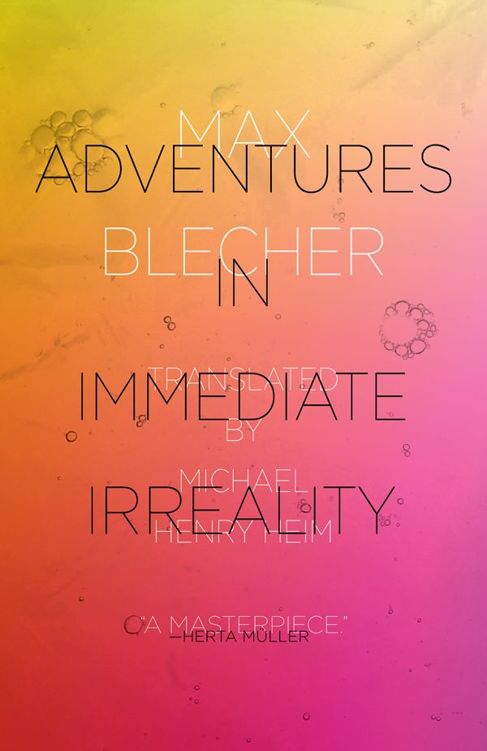
Adventures In Immediate Irreality
- اطلاعات
- نقد و بررسی
- دیدگاه کاربران
نقد و بررسی

January 26, 2015
Originally published in 1936, Blecherâs novella spins the narrative of a nameless young man who suffers from self-proclaimed âcrises,â moments of uncertainty and loss of identity, as he drifts across a small Romanian town one warm summer. Episodic chapters find him acting similarly to most of his peersâexperimenting with sex, visiting the cinema, wax museums, local fairs, and attending weddingsâyet during each of these events, the adolescent breaks from his contemporaries by ruminating on internal and peripheral occurrences impacting his life, and he searches for the existential and physical connection between himself and his surroundings. âThe notion of the world as stage accompanied me everywhere,â he claims, and Blecher uses his account to scrutinize how we all perceive our fellow man, as well as the emotional investments we apply to inanimate objects. Blecherâs gift of language is exceptional. In addition to this new translation, the slim volume contains two essays, which provide backstory and insight.

December 15, 2014
A new translation of a long-lost philosophical novel by the late Jewish Romanian writer Blecher (1909-1938). The shadow of death falls heavy over this linguistically complex and passionate self-portrait of a young man in early-20th-century Romania who composes an epitaph for his childhood at the same time that he's experiencing it. This new English translation by the late Heim is more focused and contemporary than the versions found freely on the Web and probably gives readers a closer understanding of Blecher's intent. This volume is also bookended by two excellent essays, written by Andrei Codrescu and Herta Muller, which provide context and some background on the author, who was diagnosed at a young age with spinal tuberculosis, lived most of his life in sanatoriums and died at age 28. On the surface, the novel is nothing more than a running internal dialogue by a boy observing the world around him-imagine a prewar, Eastern European Holden Caulfield filtered through the surreal and frightening lens of Franz Kafka but with considerably more teenage lust. His melancholy is so deep that he identifies moments of "crises," which a doctor diagnoses as malaria. "In small insignificant objects...I find the melancholy of my childhood and the nostalgia of the futility of a world that engulfed me like a sea with petrified waves," writes our nameless, hopeless narrator. At the same time, Blecher's doppelganger is so firmly in the moment that he fetishizes both objects and people, giving women in particular an inherent eroticism that he clearly finds as frightening as he does compelling. It's a ferocious act of self-awareness that the ailing Blecher was able to dig so deeply into his own psyche to portray the person he believed himself to be. A stylistically brittle, psychologically intense story of a young man who knows that his time is almost up.
COPYRIGHT(2014) Kirkus Reviews, ALL RIGHTS RESERVED.




دیدگاه کاربران